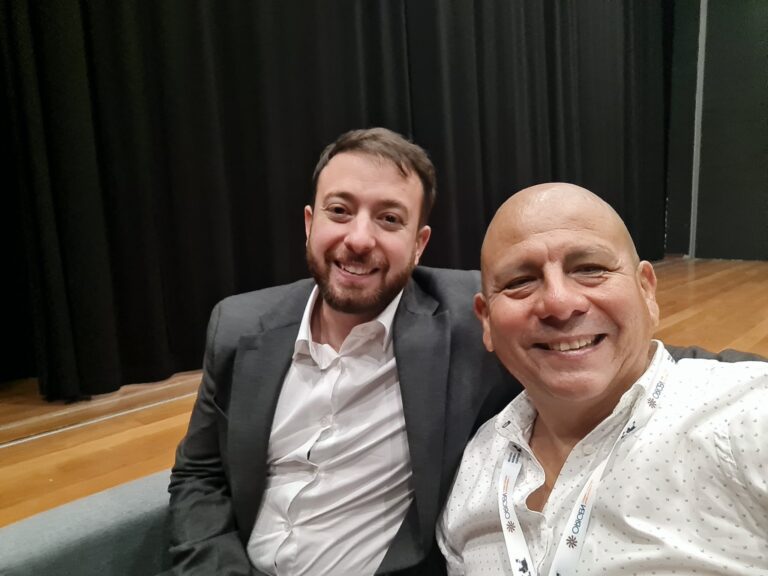February 25, 2005
Volume 7 / Number 8
Dear Colleague:
Despite its vague nature, a UN committee’s vote for a non-binding resolution calling for a ban on human cloning is another step forward for the international campaign to stop cloning.
Steven W. Mosher
President
UN’s Step Forward on Human Cloning
On February 18, a United Nations committee did a rare thing-rare because it both involved the United Nations and was good-and recommended that UN member states ban human cloning. The language of the resolution has an unfortunate diplomatic ambiguity to it, but that did not prevent media organs and public policy organizations from treating it as a call to ban human cloning generally. Assuming that the UN General Assembly confirms the resolution as expected, it is an important public relations victory for the pro-life cause worldwide as Sen. Sam Brownback (R.-Kan.) prepares to reintroduce a comprehensive human cloning ban in the U.S. Senate.
The non-binding resolution says, Member States are called upon to prohibit all forms of human cloning inasmuch as they are incompatible with human dignity and the protection of human life.
That can be interpreted various ways, of course, but that did not stop most of the members of the UN committee from refusing to vote for it. The resolution passed 71 to 35 because of a large number of abstentions, 43. Many UN members wanted a resolution that would condemn reproductive cloning
while leaving therapeutic cloning
untouched. Neither a resolution from Costa Rice advising a total ban on human cloning nor one from Belgium advocating a ban on reproductive cloning only could get enough support, so compromise language from Honduras passed instead. The resolution also recommends that governments adopt the measures necessary to prohibit the application of genetic engineering techniques that may be contrary to human dignity.
Reproductive cloning is cloning with the intention of creating a child who will be born. Therapeutic cloning is cloning to use human embryos or their stem cells in experiments while never allowing them to grow into fully developed babies. Thus, therapeutic cloning is cloning to kill, the creation of human lives in order to end them for the sake of others.
A large proportion of leaders around the world and across the political spectrum in the United States favor a ban on reproductive cloning. The task is to enact a comprehensive human cloning ban that will cover therapeutic cloning as well. UN staff summarized well the arguments for a comprehensive ban in its description of October-November 2004 debate of the UN’s Sixth Committee, which handles legal issues such as this one:
All speakers continued to favour a ban on the cloning of human beings for reproductive purposes. [Some sought] to impose a global ban on the cloning of human embryos regardless of the purpose, i.e. including a ban on ‘therapeutic’ cloning based on embryonic stem-cell research. This draft resolution was, inter alia, characterized as being critical for the protection of the dignity of the human embryo, as well as for the prevention of the potential exploitation of millions of women whose eggs would be harvested for purposes of undertaking research [particularly in the Third World]. . . . It was maintained that those supporting a partial ban were making an untenable distinction between reproductive and so-called ‘therapeutic’ cloning, which were essentially the same, with the only difference being the end goal. A ban differentiating between human reproductive cloning and ‘experimental’ cloning would, in effect, authorize the creation of a human embryo for the purpose of destroying it, thereby instrumentalizing human life.
The International Society for Stem Cell Research has written to all UN members asking that they vote against the resolution, saying it would fail to clearly distinguish the difference between unethical reproductive cloning and ethical and valuable therapeutic cloning.
In case you did not know, the only demonstrable value
of therapeutic cloning to date has been to generate large research grants for greedy researchers. Embryonic stem cell research has not produced a single effective therapy. All effective stem cell therapies have come from adult stem cells, which are obtained without killing people.
Supporters of a comprehensive ban hope that its time has finally come. With President Bush and the U.S. House already on record in favor, the legislative obstacle is the usual one, the U.S. Senate. However, the Senate has become more pro-life since the November elections. I am extremely encouraged that the international community has made such a strong statement today in support of protecting innocent human life and human dignity,
said Brownback the day of the committee vote. Human cloning is the deliberate creation of a human life for utilitarian purposes. . . . The House of Representatives has twice passed legislation to ban human cloning, and the President supports such a ban. In the coming weeks I will be reintroducing my legislation to ban human cloning, and it is my hope that the Senate will pass the ban this year.
Some countries did not waste any time in rejecting the UN committee’s advice. Britain, Belgium, China, and South Korea have indicated that they will continue their cloning experiments. Britain has even licensed Ian Wilmut, who created the Dolly the sheep clone, to clone people. Prof. Richard Gardner said in representing the Royal Society, While it is frustrating and disappointing that the UN committee has voted for an ambiguous and badly-worded political declaration, this will have no effect on the use of therapeutic cloning in Britain.
Still, the pro-life movement has gained a little more ground. The resolution is a powerful message to the world community that this morally questionable procedure is outside the bounds of acceptable experimentation,
said Austin Ruse, president of the Catholic Family and Human Rights Institute. This should encourage similar bans in legislatures around the world, including in the U.S. Senate.










